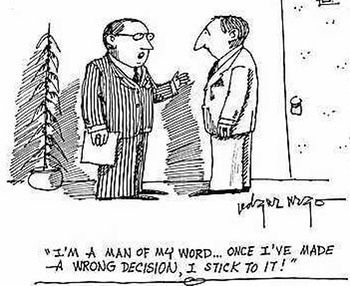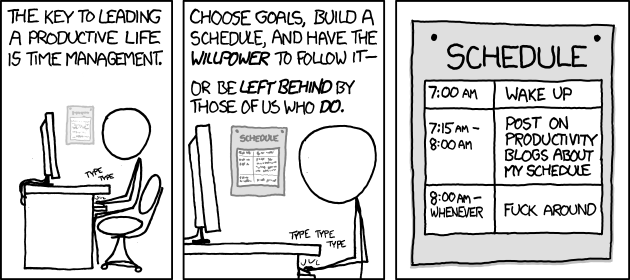“Self-help books are repetitive, toxic, and as plain as the nose on your face. ”
That’s what I thought about self-help books for a long, long time. I practically ran away from them so that nothing would tarnish my so-called image as a fiction reader.
But then I turned 21.
The early 20s are like getting hit by a truck and not dying, a set-up where so many things you didn’t realize suddenly start making sense to you.
And then, once you discover the unbearable agony of being human, you start reading self-help to finally get yourself in control. Or at least, the illusion of control.
But wait, let’s not talk philosophy today. Allow me to walk you through some principles that I’ve come across in these umpteen self-help books, cherry-picked for you.
- The Sunk Cost Fallacy
- Pomodoro Technique
- Pareto principle
- Parkinson’s Law
- The Diderot Effect
- The Dunning-Kruger Effect
The Sunk Cost Fallacy

How many times has your friend guilt-tripped you into eating something just because you bought it? Or forced you to watch a boring movie even after the interval because you paid a good amount for it?
Well, that’s the catch – you bought it. No element in time will alter that for you.
I first came across the Sunk Cost Fallacy while reading Thinking Fast and Slow by Daniel Kahneman (and yes, I haven’t completed it). To quote my man:
“A rational decision-maker is interested only in the future consequences of current investments…..The sunk-cost fallacy keeps people for too long in poor jobs, unhappy marriages, and unpromising research projects. I have often observed young scientists struggling to salvage a doomed project when they would be better advised to drop it and start a new one.”
Daniel Kahneman, Thinking Fast & Slow
Still confused? Let’s take an example- you’re doing a degree that you absolutely hate. You curse yourself because now you’ve chosen this trajectory, and it would be stupid of you to change your career since you’ve invested a lot of time and money.
Seriously? So you spend the next 30 years doing something you hate just because you spent 4 years of your youth studying for it?
It’s a sunk cost– both logically and economically.
The Pomodoro Technique

If you’re into self-help, chances are you’ve seen this a million times. Every guru I’ve seen online abides by this method (and judging by the one time I tried it, it actually works).
The Pomodoro Technique is basically a fancy name for ‘breaking down a big task into chunks.’ Here’s how it goes:
- You decide on a task
- Set a timer of 25 minutes
- Dedicatedly work for those 25 minutes (haha, gotcha)
- Take a 5-minute break before jumping into the next session of 25 minutes (which is called, you guessed it, a Pomodoro session)
- After 4 such pomodoros, you take a longer 15-20 minutes break
The idea is that focused efforts and equal breaks make you procrastinate less and do more.
So, if distraction is your middle name and you struggle to stay focused, know that you’re not alone. One fine day in 1987, a student called Francesco Cirillo was going through the same problem.
Tired of his inability to focus, he grabbed a timer from the kitchen and forced himself to read his course book for at least 2 minutes until the timer rang. To his surprise, the trick worked.
And that, my friends, is how he devised this method called the Pomodoro technique- the name of which is inspired by the tomato-shaped timer that he used. Eventually, Francesco deduced that 25 minutes of concentration with a 5-minute break worked best.
The Pareto Principle (80:20 rule)
Allow me to digress; but If I had to put the Pareto principle in literary form, I’d quote George Orwell from Animal Farm:
“All men are created equal, but some are more equal than others.”
George Orwell, Animal Farm
Life is unfair, and there’s no better principle than Pareto’s to help you understand that. It is uncannily present across many scenarios of life- like how 80% of a company’s profits come from 20% of its clients; or how 80% of the world’s problems come from 20% of causes.
Think about it, as a student, 80% of the paper comes from 20% of the portion. Isn’t that why it’s relatively easy to pass exams in a degree college? All you have to do is focus on the important chapters.
Once you realize that not all scenarios are the same, it helps prioritize and channel inputs accordingly. For example, focusing on pleasing 20% of clients that pay you the big bucks, or covering those 20% topics which you’re sure will span across your paper.
The Dunning-Kruger effect
The Dunning-Kruger effect is a slap to humanity’s perceived brilliance- a term used to declare that people who lack competence are more likely to be overconfident about their skills.
Here’s an excerpt from Adam Grant’s book Think Again– which will describe it way better than I ever can:
In the original Dunning Kruger studies, people who scored the lowest on tests of logical reasoning, grammar, and sense of humor had the most inflated opinions of their skills. On average, they believed they did better than 62% of their peers but in reality, outperformed only 12% of them.
He further adds:
In a group of football fans, the one who knows the least is the most likely to be the armchair quarterback, prosecuting the coach for calling the wrong play and preaching about a better playbook.
If you think you know more about history or science than most people, chances are you know less than you think. As Dunning quips, ‘The first rule of the Dunning-Kruger club is that you don’t know you’re a member of the Dunning Kruger club.’
Adam Grant, Think Again
In another Vox article, David Dunning (the psychologist who performed this research study) is quoted saying:
“I have to admit that over 30 years of research, I often think the correct answer to the question I’m asking you [in a survey] is, “I don’t know.” And people always give me an answer [other than “I don’t know”].”
David dunning
Parkinson’s Law
Remember how you were given 1 week to complete an assignment that would take you only 4 hours? You ended up stressing and thinking about it throughout the week, but somehow you ended up doing it only when the deadline was close.
That’s Parkinson’s law- which says that work expands to fill the time allotted to it. Read on to know what Tim Ferris has to say about this law in The Four Hour Work Week:
If you’re an employee, spending time on nonsense is, to some extent, not your fault. There is often no incentive to use time well unless you are paid on
commission. The world has agreed to shuffle papers between 9:00 A.M. and 5:00 P.M., and since you’re trapped in the office for that period of servitude, you are compelled to create activities to fill that time. Time is wasted because there is so much time available.How is it possible that all the people in the world need exactly 8 hours to accomplish their work? It isn’t. 9–5 is arbitrary.
Since we have 8 hours to fill, we fill 8 hours. If we had 15, we would fill 15. If we have an emergency and need to suddenly leave work in 2 hours but have pending deadlines, we miraculously complete those assignments in 2 hours.
-Tim Ferris, The 4-hour Work Week
It is all related to a law that was introduced to me by Ed Zschau in the spring of 2000 (which of course, is Parkinson’s Law)
Digression: An interesting term that I came across lately was “bikeshedding”- which means wasting time on smaller, unimportant details rather than the actual task at hand. It stems from Parkinson’s (yes, the same man) law of triviality which states that people in an organization spend unnecessary time and energy on trivial issues. Where’s the lie though?
The Diderot Effect

Denis Diderot was an insanely talented French philosopher from the 1700s, who greatly contributed to the Encyclopedia throughout his lifetime. The Empress of Russia was so impressed after seeing his work that she offered to buy his library- a deal that brought Denis whopping cash.
Like most of us, the first thing that Denis thought of was buying a shiny new scarlet robe with the money. Alas, he realized that his armchair was too old to match his new sparkling robe, so he spent some more cash buying a new armchair. Then, the curtains seemed a bit old and dusty. He had the money, so why not spend it on buying curtains too?
And then, as history had it, Denis became poor again.
This is called the Diderot Effect– when buying one thing spirals down into more consumption, something that even the best of us can’t escape.
Let’s say you just bought an iPhone. The watch you wear doesn’t go well with the standards of it, so now you want an iWatch. Of course, using your old Bluetooth headphones would be really uncool, so you wish to buy the Airpods next.
The Apple ecosystem is just a prevalent example, but even otherwise, there’s a spiral of consumption that begins every time you buy something new- like matching shoes and earrings with your next outfit. In the words of my physiology professor, it’s all a vicious cycle. In his essay titled Regrets for my old dressing gown, Denis beautifully exclaims:
My friends, keep your old friends.
My friends, fear the touch of wealth.
Let my example teach you a lesson.
Poverty has its freedoms; opulence has its obstacles.
-Regrets For My Old Dressing Gown, Denis Diderot
Summing it up
While these principles are not absolute truths, they’re a means to understand humanity a little bit better- and if that is not fascinating, I don’t know what is.
For more insights into non-fiction reading and self-help, check these out:
- The 4-hour work week by Tim Ferris
- Think Again by Adam Grant
- Man’s Search for Meaning by Viktor Frankl
- Almanack of Naval Ravikant by Eric Jorgenson
- YouTube- Ali Abdaal
Thank you for coming this far! Please do share, drop a comment or subscribe for updates- I’ll see you next weekend.
Leave a Reply